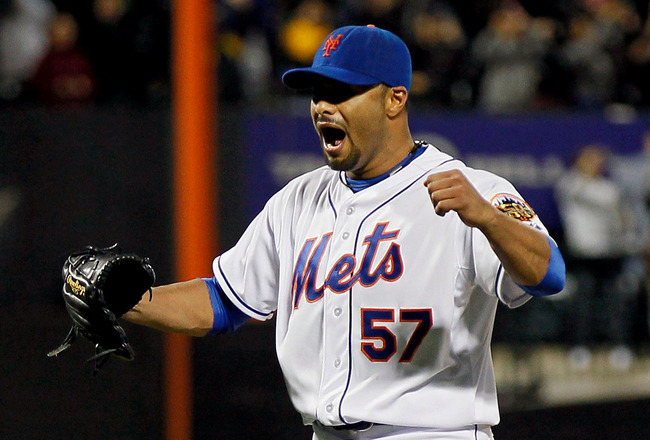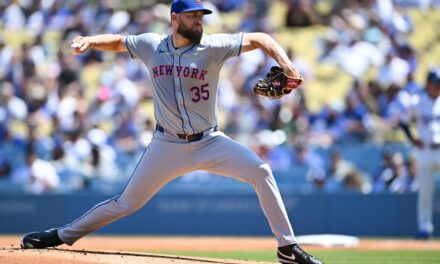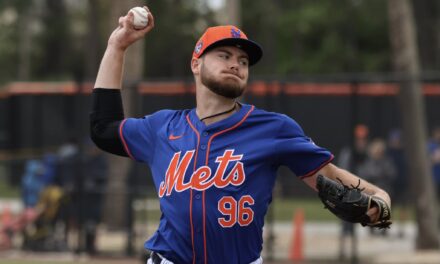
We all have dreams in life. We all strive for something better, something that fulfills us and makes us feel like we truly found the right calling.
Whatever the desired goal is, it’s usually an arduous uphill battle to achieve it. No one ever said it would be easy. Hard work, sleepless nights, and, at times, self-doubt creep in and try to deter us from reaching our desired ambitions.
Sometimes we don’t achieve those dreams right away, as if life is testing us to see if we have the stamina and wherewithal to continue pushing and not let go of what makes us truly happy.
We can all relate to times when we’ve doubted ourselves and wondered if it was time to move on to something else. That’s what happens at times; we adapt and roll with the punches in life. Move on and don’t dwell on the past, we tell ourselves.
But what if that wasn’t the right plan to take? What if giving up on a dream that too many might seem improbable is one that you need to continue fighting for?
What good is life without a dream?
Kevin Burkhardt encompasses this idea perfectly. A man that had aspirations of joining his heroes like Bob Murphy, John Madden, Pat Summerall, and Gary Cohen in doing what they all loved: sports broadcasting.
With a personable charm and a mellifluous voice, Burkhardt yearned to be a sports broadcaster, forever hoping his desired goal of working on television would someday materialize for the New Jersey native.
Gone were the days of working his high school football games on a local access channel, or recording himself broadcasting a Nintendo baseball game, Burkhardt wanted to take the next step: the big leap into the world of professional sports broadcasting.
His journey is a perfect case study for how one should never fully give up on a passionate ambition. While he never abandoned his aspirations for broadcasting, he realized that he needed to take opportunities as they were presented, which meant working at a local Chevy dealership while continuing to pursue his ultimate goal.
Mets fans remember Burkhardt from his time as the Mets’ field reporter from 2007 to 2014. His role expanded over time to doing play-by-play for select spring training and regular-season games, pre-and post-game shows, and hosting the offseason show, Mets Hot Stove.
He was the fan’s reliable source of information of all things Mets, from the day-to-day material to human interest pieces, to showing off a particular stadium’s nuances.
If there were a story to be had, Burkhardt would be on the prowl.
Many took notice of the rising fame of Burkhardt during the Mets telecasts. He joined Fox Sports in 2013 and worked as a play-by-play man for their NFL coverage. At the conclusion of the Mets’ 2014 season, he left SNY for Fox Sports in Los Angeles.
Since his departure from Queens, Burkhardt has handled play-by-play duties for Fox’s NFL coverage, is the face of their MLB pre-and post-game coverage throughout the season, and also works on the network’s college basketball studio programming.
Burkhardt’s ascension in the sports broadcasting world is a testament to his tenacity, desire, and patience that bigger and better things were on the horizon for him.
I had the privilege of speaking with the former sideline reporter last week, where we discussed his earliest memories of wanting to work in the broadcast industry, his time at the aforementioned Chevy car dealership, and some of his fondest memories working for the New York Mets.
MMO: When did you know that you wanted to be a broadcaster? Did you have one of those “aha” moments in your life?
Kevin: I knew I wanted to do it for a long time. I guess high school was the first real time that I knew. We didn’t have much at our high school at that time; we had one video camera. I remember we had access to the local access channel which was a channel that was played in town, so we would go and set up a camera and record the football games and I would do the play-by-play and my buddy was like the color guy.
They would run a couple of days later on the town’s local access channel. We had that and I used to call Nintendo games in a tape recorder as a kid, just trying to emulate people that I really loved.
Honestly, there were a couple of games I used to do it with, but there was this game, Baseball Stars, which at the time was a pretty revolutionary game. You could pick your team and if you win you get cash and you power up your team.
Back in the day, I had a radio with a dual cassette, and what I would do is I would call the baseball game into the tape recorder, and then I would do like Mets Extra. I would take the first tape where I record the game and then I would record onto the second tape like highlights, so just like they used to do I’d be like, ‘Okay, in the second inning it was so-and-so up,’ and then I’d play the clip.
I basically tried to do my own version of Mets Extra back in the day. With that, I knew I always wanted to do it. I didn’t know how far it would take me, but I always dreamed of doing it.
MMO: Who were some of your broadcasting idols growing up?
Kevin: There were a lot of them. I can’t say that there was one particular person that I emulated myself off of because there isn’t. I paid attention to a lot of different people and my family was always Mets fans and we didn’t have cable growing up. I know that’s unthinkable to people now in this age, or I guess it’s not because there are a lot of people that don’t have it now.
We listened to a lot of games on radio in the summer out in the backyard. Bob Murphy and Gary Cohen obviously were a big part of our soundtrack growing up. There are so many other guys.
For football, any time Sunday was on [John] Madden and [Pat] Summerall; I lived for those guys. It just felt big with them and I always remembered how that felt listening to them.
I think I’ve tried to take a little bit from a lot of people that I grew up really liking. But there isn’t one that I try to pattern myself after or one person. I think it’s a lot of people that had an influence on me.
MMO: You worked as a car salesman for a local Chevy dealership in New Jersey prior to making it big. Can you talk a little about that particular time in your life?
Kevin: I was a struggling broadcaster. I was doing the same thing knocking my head on the wall just trying to get a break. It’s harder to get somebody to get you in the door.
I was working at a small radio station in Jersey at the time, and I was doing a bunch of other things, just trying to add things to my resume. I just kind of woke up one day and I was like, Screw it! I’m sick of making $18,000 a year and I’ve got a bunch of friends that are working on Wall Street. What am I doing? Not that I really thought at the time that I was giving it up because I never did. I just thought I needed a jump start and I thought I needed to see something else instead of the same routine every day because you get complacent a little.
I literally picked up the Sunday paper one morning and I went through it. I just put my finger in a random spot and it landed on a car dealership. I went in and asked for a job, and that’s how it went. I didn’t care what it was, I just knew I needed to do something different. I needed to make some money.
I got the job and I went in and did it. As a little time went on my boss, who now is a great friend of mine, heard me one night at home as I was doing some part-time stuff with WCBS in New York. He’s like, “Holy cow, you really are on the radio!” He said, “Whatever you need let me know and I’ll help you work around your schedule.”
It kind of became a good jump start for me. It kind of was like, Hey, I don’t want to give this up yet. I think I need to give this another shot before I move on to do something else.
I worked there for a year and it was like the greatest life lesson ever. I just learned so much there about myself, moving forward from that job and from the people that I worked with that I don’t think I’m here today without that.

MMO: From there, how did you go about landing the Mets job?
Kevin: There’s a lot between then and then, but essentially after the car thing I got breaks and I started taking advantage of them. I got into WCBS and started working more there. Then I got full-time there and while I was full-time I started doing part-time at the FAN. Then I got full-time at the FAN and I was there for a couple of years. I had people opening doors for me because you’re there and people obviously hear you at that station.
I always wanted to do TV since college. I just never had the opportunity and so I started doing little guest appearances or little, little roles wherever I could find them. Then SNY, I was covering the Jets for the FAN, they had me do a couple of Jets shows when they needed some fill-ins, and actually worked out pretty well.
When Chris Cotter decided to leave the Mets gig they interviewed [for it], and I interviewed. I didn’t think there was any way in the world I was going to get it. I just kind of went in like, Oh cool, this would be great. I really truthfully just put it out of my head.
Then when I got the call that I got the job I was like, What?! [Laughs.] It was kind of fast and furious after I left the car dealership I guess in some ways.
MMO: Your work on the broadcasts was superb and I think a bit before its time. You would interview starting pitchers mid-game after they came out, would kayak in the bay in San Francisco, among many, many other fun and interesting sideline reporting you would do with the Mets. Were you given a lot of freedom to test out certain things, was it a collaborative effort, or a mixture of both?
Kevin: It was an accumulative effort. We had, and they still have, a great producer, a guy by the name of Gregg Picker. He’s awesome. When I got the job, I knew the Mets and I knew baseball, but I had no idea what I was doing.
I had a vision in my head of what I wanted it to be, but I’m coming from the FAN, where I’m doing talk shows overnight for five hours by myself. Now it’s like, you’re going to be a reporter, which is fine. You’re going to be the in-game reporter, which I had no idea. You’re talking about making something that’s 25-30 seconds interesting.
From the get-go, he had great advice for me. I think a lot of time with field reporters in baseball, I think there is this mantra that you have to have X amount of material, you’ve got to have four hits or five hits, you’ve got to be on the broadcast seven times or whatever it is.
He said, “I don’t care how many times you’re on. I don’t care if it’s one or ten, there are going to be days when you have a lot, and days when you have nothing.” Which, by the way, is true when you work every single day of the year.
He said, “I’d rather you work on stuff and do stuff that’s interesting and be on once. Have something that’s really interesting and memorable then be on just to hear yourself talk.”
That was the best piece of advice I had ever got because then I never was just okay, I’m just going to speak BS garbage just to hear myself speak.
I always tried to give something that was, even if it wasn’t lengthy, just a nugget that was interesting in some way, or different. Or at the very least add to what Gary, Keith, and Ron were saying. From there, it just kind of went.
Obviously, we started out where I’m getting a lot of advice and a lot of help, and then Greg and I trusted each other so much that we were always on the same wavelength. We got to a point where I wouldn’t even tell him what I was doing until before the game, where it’s like, this is what I’ve got. We would work it into the broadcast because we just had such trust that it was seamless.
Basically, I would sit and read, read, read, and I would brainstorm. I would look at things that were going on, I’d try to think of things and questions that I’d like answered. I’d look at the other team; what’s interesting there? Who can I talk to? That would be one part of it, and I’d have a notebook full of ideas going into the series. Then it was really about talking and paying attention. You know you’re at the stadium, pay attention to what you’re seeing, and talk to different people.
You’re talking to someone for a story, but sometimes you’re just talking and you get a story out of it. Or you get an idea for a story just by talking to people at the yard. You’re talking to somebody about something else and you’re like oh, that’s interesting. When did you start doing that or when did that happen? Then all of a sudden, the next couple of days, you’re working on a story based on that conversation.
There were a lot of different avenues to come up with stories. I think the last thing of this long-winded answer was we’d have long-term goals, too. So he’s like, “Okay, over the next few weeks I’d love for you to work on these couple of things.”
For example, it’s Father’s Day in a few weeks: I’d love to get some stories about fathers and these guys’ lives, and the roles that they played. Like human interest stuff, which I loved doing. So I’d say, ‘Okay, cool.’ You talk to a bunch of people and sometimes you get a good story and sometimes there’s nothing there.
That was kind of long term and I’d put that in the can until the week before Father’s Day. It was all of those things going on at once and hopefully, you have one or two things a night that you can add to the broadcast.
MMO: Is there a favorite moment or two that stands out from your tenure with the Mets?

Kevin: The no-hitter was amazing. Being there for that, a Mets fan, and obviously, you know the history. I always wondered – because we had some days off obviously – and if the game at that time was on Fox or ESPN we’d have off. I’m like, man, it would really suck if they had a no-hitter and we all weren’t working!
I’ll never forget the whole night, especially since it started off so weird. His performance did not feel like a no-hitter at all. The fact that Terry Collins said before the game that he’s not going to throw a lot of pitches. And then the emotions afterward on the field, in the dugout giving Eddie Coleman and me hugs, it was just so raw and emotional.
The first no-hitter and I get to ask the first question to Johan on the field, it was great! I’ll never forget that.
That’s the main one and then there was just a lot of fun stuff along the way. I mean, their play on the field never worked out in terms of going to the playoffs or winning a World Series or anything like that. There were just a lot of really fun games and great relationships that I built, and fun stories that we worked on that I loved.
Mainly, for me, on a personal level, it was just getting to spend time with our crew. Our crew was amazing from top to bottom. When you’re on the road and you’re working with these people for 200 nights out of the year, they’re your family. So that was the best thing for me.
MMO: Now working on Fox Sports 1 and hosting MLB Whiparound, was there any difficulty going from focusing on a singular team and their opponents for a series, to now having to be in tune with all thirty major league teams on a national level?
Kevin: It wasn’t difficult, it was just different. When you’re with a team you’re so focused on that team and plugged into that team. I always paid attention to the league, but it’s not on a grand scale like it is now.
Now I’m pretty well versed on every team. I have to be. I knew what was going on around the league when I was with the Mets, you have to be there, too. But my focus was always on the Mets and who they’re playing and especially in the division.
It’s just the allocation of prep time. I spent – I don’t know – an hour and a half every morning reading articles about the Mets and thinking about stuff and brainstorming ideas. Then I’d spend half an hour to an hour on the team they’re playing, and now I’m just divvying that up nationally. It’s just about a change in prep routine.
The hard thing about this is you can’t be an expert on everything. The only remedy I know is reading as much as you can, watching as much as you can, and talking to people when you need answers. I reach out to people but as far as watching and reading there’s no substitute because I’m still a baseball junkie. I still love the game and know a decent amount of people in it.
Instead of watching the Mets every night, Mat, the difference is now I’ll watch the Cubs and Rockies tonight. It’s just mixing and matching like that but I enjoy it. Of course, I miss the Mets, the crew, and the fans, but I love what I’m doing now.
MMO: Kevin, thank you so much for your time today. I greatly appreciate it.
Kevin: All right, Mat. All the best to you, brother.
Follow Kevin Burkhardt on Twitter, @kevinburkhardt















